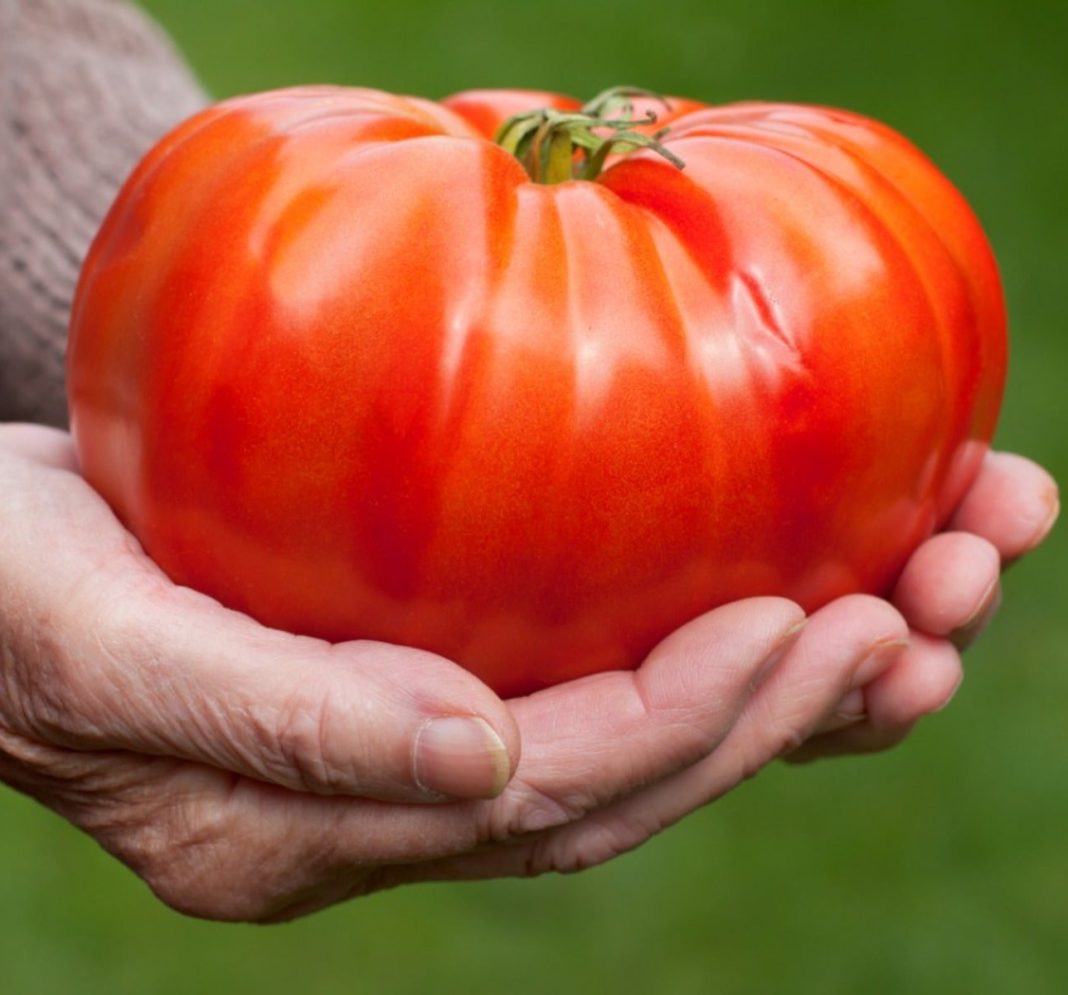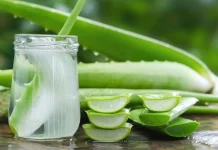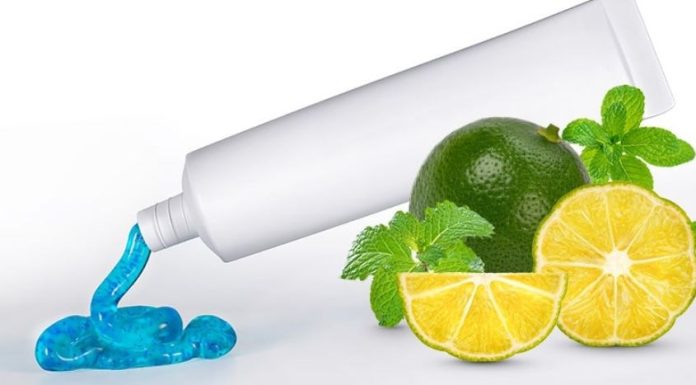
The gardening world is full of old wives’ tales and suspicious suggestions for magical remedies to cure any garden ailment. Sorting facts from fiction is a daunting task when there’s so much conflicting information. Growing giant tomatoes in your garden isn’t just a matter of planting and hoping for the best. It requires a careful blend of science, dedication, and a bit of gardening magic. Giant tomatoes, those marvels of the vegetable world, can be both a source of pride for gardeners and a delightful spectacle. This Special Key Ingredient will help you succeed: Epsom Salt!
4 Things Epsom Salt Does For Tomato Plants

1. Fix yellowing leaves

The sight of yellow leaves can be stressful for a tomato gardener. There are multiple reasons for yellowing leaves on tomato plants – incorrect watering, fungal disease, pest problems – that can either be easy fixes or signal the imminent demise of your plant.
One of these problems with an easy fix (if you have some Epsom salt on hand) is magnesium deficiency.
The most common sign of a magnesium deficiency in tomato plants is yellowing leaves with distinctive green veins. This condition – known as chlorosis – occurs when the plant does not produce enough chlorophyll.
Magnesium is an integral part of chlorophyll production. Magnesium deficiency for extended periods thus results in the yellowing of the leaves.
As magnesium is a main component in Epsom salt, its application can quickly combat magnesium deficiency and return your plant to good health.
Apply as a foliar spray by mixing one tablespoon in a gallon of water and misting the leaves. Avoid spraying in sunny weather to prevent damage or before rain to ensure the leaves have time to absorb the mixture.
2. Improve flavor

When growing tomato plants, you can’t ignore the importance of flavor. No one wants to harvest a pile of tomatoes that are bland – you can buy those in the grocery store!
One of the several ways you can improve the flavor of your tomatoes is Epsom salt application.
Magnesium and sulfur are both important plant micronutrients. Magnesium plays a core role in photosynthesis, while sulfur aids in the production of enzymes and proteins. Although they are only needed in small amounts, they make a big difference to the health of your plants.
A solid supply and balance of all micronutrients – including magnesium and sulfur – are essential to plant health, which in turn makes your tomatoes tastier.
The addition of a small amount of Epsom salt in your watering can before watering will make those essential micronutrients available to the plant, improving the flavor of the fruits come harvest time.
3. Improve nutrient uptake
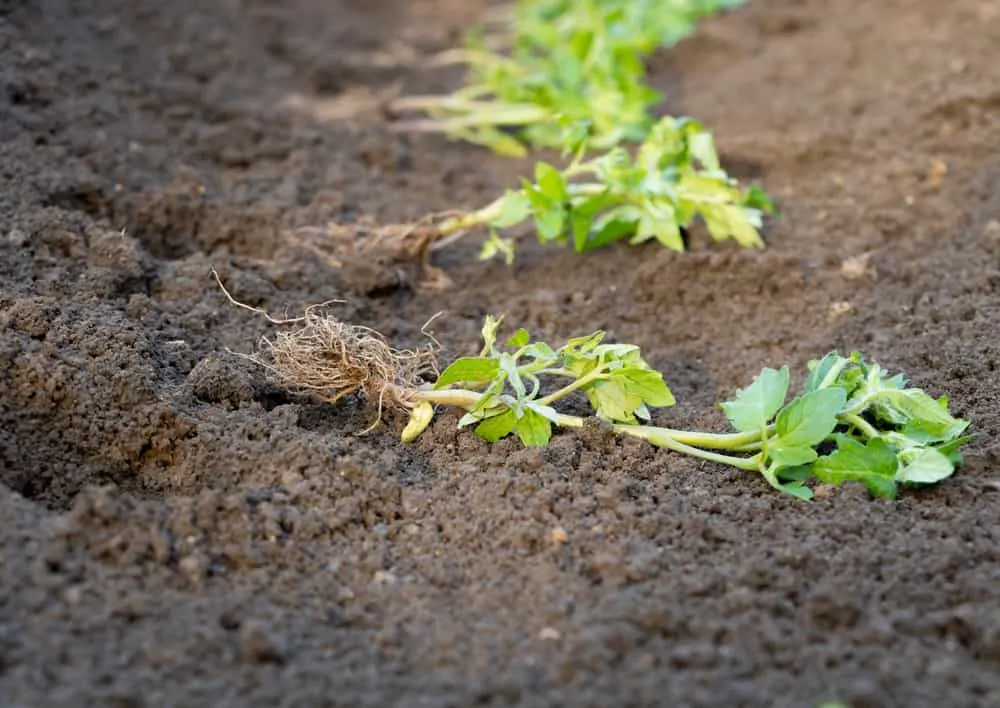
Magnesium and sulfur are needed in such small amounts, but a lack of these micronutrients can stress the plant, limiting the uptake of other vital nutrients like nitrogen and phosphorus.
Nitrogen is essential to healthy plant growth and phosphorus aids in flower and fruit production. Without these elements, you may have an unsuccessful harvest, no harvest at all, or dying tomato plants before they can even begin to fruit.
Research shows the application of Epsom salt in micronutrient deficient soil can improve uptake and use of these other important nutrients, improving the overall health of your plants. Apply the salt to deficient soil before planting or dilute in water and add when deficiency is evident.
4. Improve growth
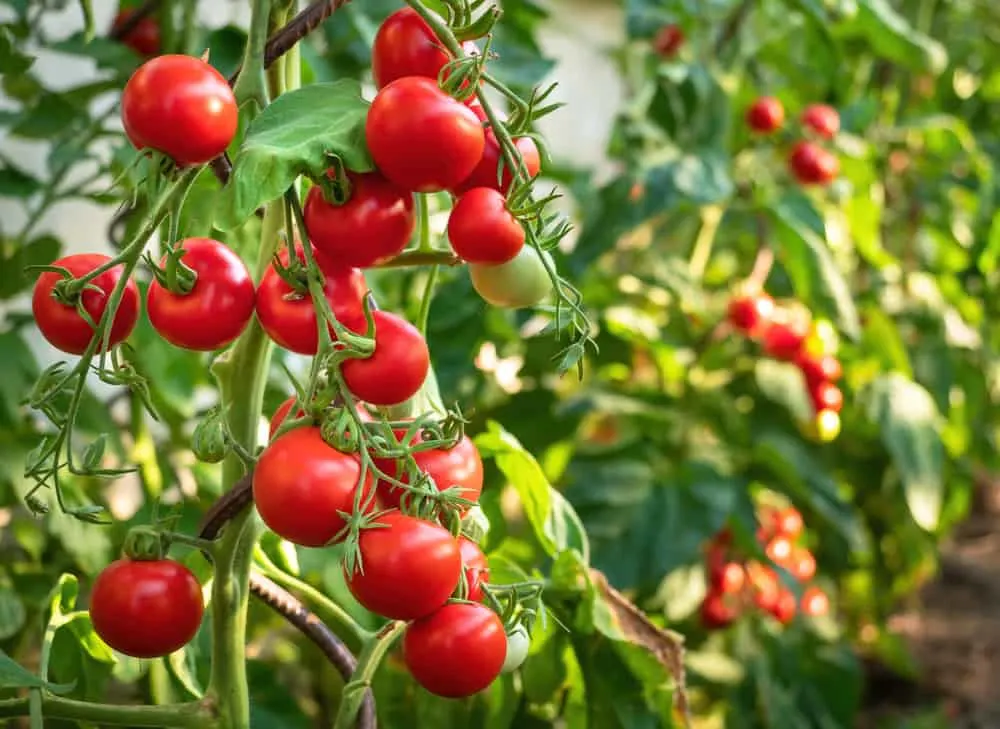
Again, it’s all about the micronutrients. When your tomato plants are provided with everything they need, they will grow as intended, producing all the tomatoes you could wish for. When they lack certain nutrients, the plant cannot grow correctly and will encounter several problems.
This is especially true for magnesium. Without it, the plants cannot photosynthesize, leaving them without fuel for growth. Even in perfect lighting conditions, a plant with less chlorophyll will not be able to process the extra sunlight and turn it into chemical energy.
Use Epsom salts to restore the micronutrient levels in the soil, and your tomato plants will grow taller and produce more fruit – every tomato gardener’s ultimate goal.


